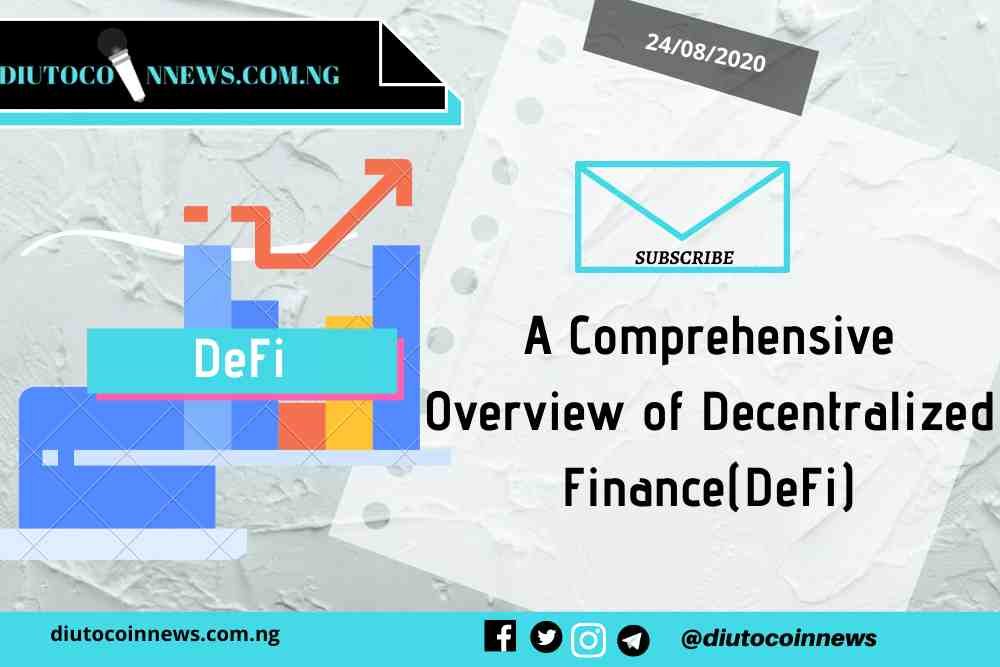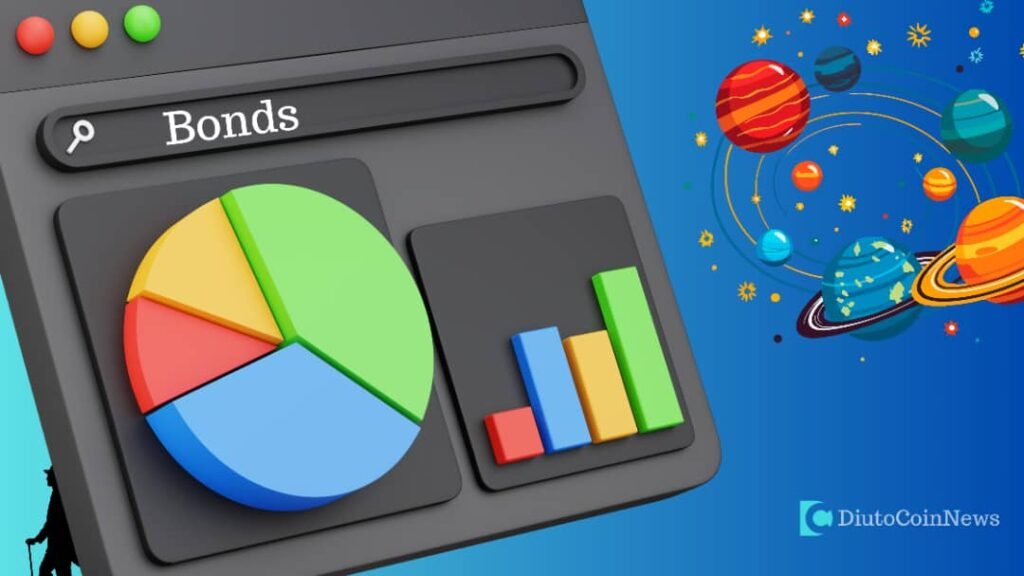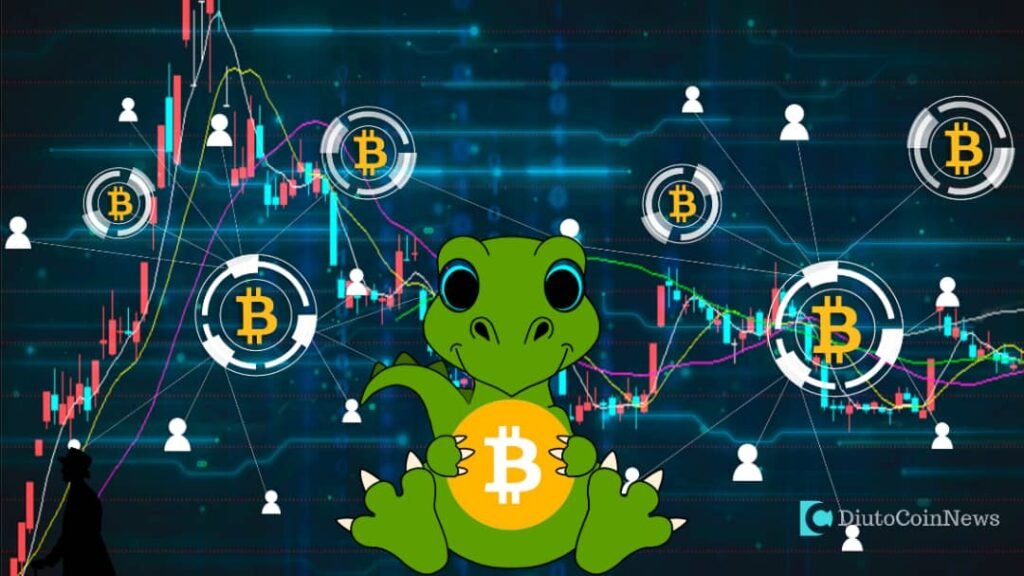What is decentralized Finance(DeFi)?
Decentralized Finance (DeFi) is the new Financial ecosystem that is here to disrupt the old way or traditional way of Finance. DeFi is a new financial system that is created and built on blockchain networks.
DeFi can simply be termed as a Financial system that is readily available for every human being with respect to the category the person belongs to.
Either the upper-class people, the middle and the lower class people. It is transparent, there is no form of regulation or central authority. The people have a total autonomy or authority over their assets and interact through Peer- to- Peer( P2P), Decentralized application( Dapps).
Advantages of Decentralized Finance( DeFi)
The main advantage of DeFi is the simplest way of accessing financial services, most importantly for people who are denied access to the current traditional financial method.
Another great benefit of DeFi is the modular framework it is built upon interoperable application on the public blockchain which will greatly and increase a new financial system, products, and services.
Another main advantage of DeFi over traditional finance systems is that they depend on the government and banks to act as an intermediary between courts to provide legal services. DeFi system does not need any intermediate to arbitrators or any government regulators.
The people have control over their funds all the time. This leads to a decrease in the cost of using and providing these financial products and invariable pave way for a more frictionless financial system.
Join Diutocoinnews On Telegram
As time goes on and these hybrid financial services are deployed through blockchains every single point of failure is eliminated. All data are recorded on the blockchain and this makes censorship or control by a group of people or shutdown of services a complicated issue.
Since the Defi application can be built-in advanced, deploying one becomes much less complicated and much more secure.
The use case of technology or blockchain project determines how good the project is, one of the most important use cases of DeFi is borrowing and lending.
Read Also: Understanding What is DeFi and How it Works
Open lending protocols are one of the endearing types of applications that are part of the Defi ecosystem. Decentralized borrowing, open, and lending have so many positive hedges over traditional financial systems.
Among these is access to instant transaction settlement, no credit checks, standardization in the future and access to collateralize digital assets.
Because these lending services are built on public blockchains, they reduce the amount of trust required and verification method assurance of cryptographic.

Lending services on blockchain reduces counterparty risk. It makes borrowing and lending easy, cheaper, faster, and available for people to access.
Another good aspect of DeFi is monetary banking services. As the definition goes, DeFi applications are monetary banking and financial services. The services are mortgages, insurance, and insurance of stable coins.
With the use of smart-contracts, the process to have access to the mortgage will be less expensive, the insurance on the blockchain could also get rid of the need for intermediaries and allow the distribution of risk among many users.
Role of Smart-contracts in DeFi
Unlike the traditional or centralized system that uses legal terminology to spell out the terms and regulations between entities entering a contract, a smart-contract uses computer code.
DeFi smart-contracts have the unique capability to enforce terms through computer code. This gives room for automation of a broader number of a business process that currently requires manual supervision.
Using smart-contract for terms is easier, faster and minimizes risk for all parties.
Marketplace
DeFi application may be challenging to assess because it is a segment of DeFi that gives room for financial innovation.
Many of the most important DeFi applications are decentralized exchanges, examples are Uniswap, Binance Dex, and many more.
All these decentralized exchanges allow traders to trade digital assets without the need of any middleman or middlemen to get hold of their funds. The trades are made directly between the trader’s wallets through the assistant of smart-contracts.
Many of these exchange platforms require less maintenance work, so require lower trading fees than the centralized exchanges.
DeFi application helps to remove centralization and eliminate a single point of failure.
Security Token issuance platforms may provide the tools and resources for developers to launch tokenized securities on the blockchain with customization.
Blockchain technology can also use to issue and give room for ownership of a wider conventional financial instrument.
DeFi application allows the creation of derivation decentralized forecasting markets and asset synthetic.
Challenges facing DeFi
Bug Smart-contract introduces new types of risk because computer codes are prone to encounter bugs and vulnerabilities, the confidential information and value locked in smart contracts are at risk.
User Experience: Using decentralized Finance needs extra effort from people. For DeFi to become a full-time element in the world financial ecosystem, DeFi developers should provide a reasonable benefit that will make people choose DeFi over the traditional financial system.
Error From User: One of the negative aspects of DeFi is the transfer of responsibility from intermediaries to the people using the application. Developers should look into how to minimize the risk of user error.
The Different Between DeFi and Traditional Banking System
DeFi is an integral new Financial system that is characterized separately with the current financial systems. DeFi is also known as Open Finance because it is open to everybody.
The traditional banking system is a system that third party financial service providers are given rosy access to financial data through API.
API makes the chain of data and accounts between banks and non-banks financial organizations.
Defi could make available the management of all traditional centralized Financial instruments in one application by data from different financial institutions.
Defi allow the new way of communicating in the financial world
Final Remarks
DeFi focus is to change the entire financial services system. DeFi is targeted at making Financial service free from political interference and to be separate from the old financial system.
Looking and building the use cases that are suitable for all the elements of blockchain is important in building a useful layer of open financial products.
DeFi will eventually take power from centralized institutions and put the power into the hand of every individual.
Once Defi is accepted in the mainstream, whether it will solve all the anomalies of the traditional financial system and create a more operative and fruitful financial system will be known.
Written By Stephen Voski—Binance Campus Ambassador
Discover more from DiutoCoinNews
Subscribe to get the latest posts sent to your email.















